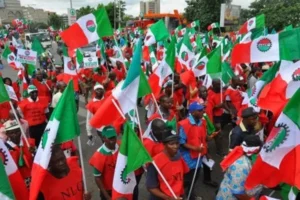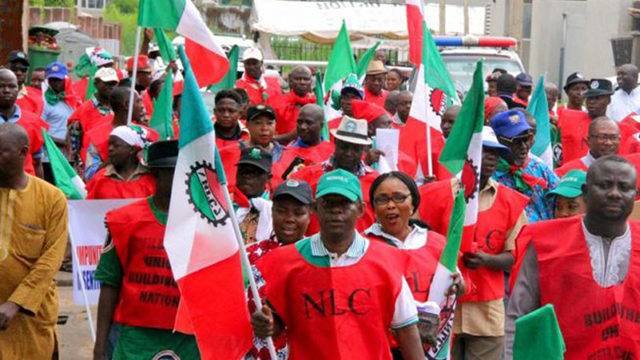In a surprising turn of events, labour unions in Rivers State have decided to put their planned protest on hold. The Nigeria Labour Congress (NLC) and Trade Union Congress (TUC) announced this decision on Sunday, citing fears of potential violence.

The unions had initially planned to demonstrate against the ongoing police presence at local government secretariats across the state. However, reports of possible troublemakers intending to hijack the protest led to a change of plans.
Alex Agwanwor, the NLC Chairman in Rivers State, addressed reporters in Port Harcourt, urging the police to arrest anyone who attempts to protest in the name of the unions on Monday. This stern warning aims to prevent any unauthorized demonstrations that could lead to unrest.
The labour leaders also reached out to members of the Nigeria Union of Local Government Employees (NULGE), who were at the forefront of organizing the protest. They advised NULGE members to await further instructions from the main labour bodies before taking any action.
This decision comes after a series of events that have raised tensions in Rivers State. The unions had previously expressed concern over three main issues: the setting up of Caretaker Committees for local governments, calls for a state of emergency by the opposition All Progressives Congress (APC), and the police takeover of council offices.
While acknowledging the police’s role in maintaining peace, the labour leaders criticized the denial of access to workers at these secretariats. They view this as a violation of workers’ rights and have called on the Inspector General of Police to intervene.
The unions’ leadership also took the opportunity to dismiss allegations of political bias. Some former Local Government Chairmen had accused the state labour leaders of taking sides in the ongoing political disputes, a claim the unions firmly rejected.
This suspension of protest plans highlights the delicate balance between workers’ rights and public safety in Rivers State. It also underscores the complex political landscape in which labour unions must operate, often navigating between government actions, opposition claims, and the needs of their members.
As the situation continues to evolve, all eyes will be on how the state government and police respond to the unions’ concerns. The labour leaders have made it clear that while they’re stepping back for now, they remain committed to protecting workers’ rights and access to their workplaces.
This development serves as a reminder of the crucial role that labour unions play in Nigeria’s democracy, acting as a voice for workers while also considering broader societal impacts of their actions. As Rivers State grapples with these challenges, the path forward will require careful dialogue and cooperation between all parties involved.




